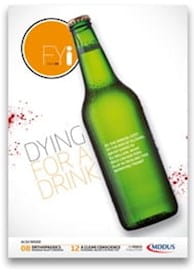BY now, most of you will be easing your way into foundation training and embracing the beginning of your medical careers. Part of that challenge involves working in a busy ward environment for the first time. With pressure to keep pace with current medical developments and meet patient expectations, it is important not to overlook the key role of the multidisciplinary team in ensuring things run smoothly.
During medical school, it is easy to get caught up in the process of acquiring knowledge and passing exams, and students can forget the other members of the healthcare team. However, good relationships with nurses and other healthcare staff can make the job signifcantly easier, especially at the start of the first foundation year.
Studies have also shown that good teamwork correlates positively with patient satisfaction and plays a crucial role in patient safety.
An editorial published in the BMJ in 2010 by Rhona Flin, professor of applied psychology at the University of Aberdeen, noted that rudeness and a lack of mutual respect among clinical teams can compromise patient safety.
She described how “a series of studies has shown that being the victim of rudeness can impair cognitive skills”. This was illustrated in the 2009 case of two airline pilots who started arguing, lost concentration and ended up overshooting the airport by 150 miles. The example can also be applied to medical teams where rudeness or an emotionally charged atmosphere risks distracting healthcare professionals from crucial tasks.
On the ward…
The importance of teamwork is something I have become increasingly aware of during my training. I am currently based on a cardiology ward where I have to work alongside a wide range of healthcare professionals in order to deliver effective, safe patient care. A typical day starts with a safety brief from the sister or ward receptionist which provides a quick orientation of patients at particular risk, including frequent fallers, wandering patients and those with infections. During the day, senior colleagues delegate tasks such as reviewing patients, chasing bloods and ordering investigations. In the afternoon, daily team meetings with the FY1, advanced nurse practitioner (ANP) and senior house officer (SHO) provide an opportunity to discuss patient care.
It’s vital to learn how to work well with everyone, from the ward sister to the senior doctors and also the pharmacist. Good team relations will also make your job easier when it comes to important tasks such as completing discharge summaries which rely on your ability to gather information from different members of the team. And remember, most of these people will have been working in the hospital a lot longer than you and there is a lot to learn from them. Always listen and consider their input – never assume you know best.
Asking for help
Starting work on the wards can be daunting as a trainee, so having someone to turn to for advice or support makes all the difference. This is especially true for on-call work. The hospital at night team varies from hospital to hospital, but most include ANPs, senior doctors and clinical support workers (CSWs). CSWs can be invaluable in the middle of the night when you’re struggling to get a cannula in, as can ANPs in the patient with sepsis or the on-call SHO for less straightforward scenarios. (Don’t forget to note all the relevant pager numbers before starting your shift.)
In acute receiving wards, good relations are also vital to ensure things run smoothly. At busy periods, the nurses will be far more understanding if you’ve previously taken time to consider their input. Also, remember to ask questions on the consultant ward rounds – as well as being a learning opportunity, it makes the phone call to the duty radiologist or consultant microbiologist much easier later in the day.
The General Medical Council, in its core guidance Good Medical Practice, highlights the importance of teamwork. When working in a team, it says doctors must respect the skills and contributions of colleagues, learn to communicate effectively with them and ensure both patients and colleagues understand your role and responsibilities within the team and know who is responsible for each aspect of patient care. Importantly, working in teams “does not change your personal accountability for your professional conduct and the care you provide.”
It goes on to advise doctors to take part in regular reviews and audits of the standards and performance of the team so that any de.ciencies can be remedied. So next time you’re thinking about skipping the afternoon meeting on morbidity and mortality in favour of a coffee in the canteen, remember they can be a useful learning opportunity and your input will be valued.
The GMC adds that effective teamwork also involves being willing to offer support to any team members who have problems with performance, conduct or health. If you have concerns about a colleague then don’t ignore them. Depending on the situation it may be appropriate to raise concerns with the person directly or alternatively seek advice from a senior colleague.
Like any skill, teamwork is something that can improve with practice and the best approach is to acknowledge and respect the role played by all members of the team.
Dr Anne Parfitt-Rogers is an FY1 at Crosshouse Hospital, Kilmarnock
This page was correct at the time of publication. Any guidance is intended as general guidance for members only. If you are a member and need specific advice relating to your own circumstances, please contact one of our advisers.
Read more from this issue of FYi

Save this article
Save this article to a list of favourite articles which members can access in their account.
Save to library
